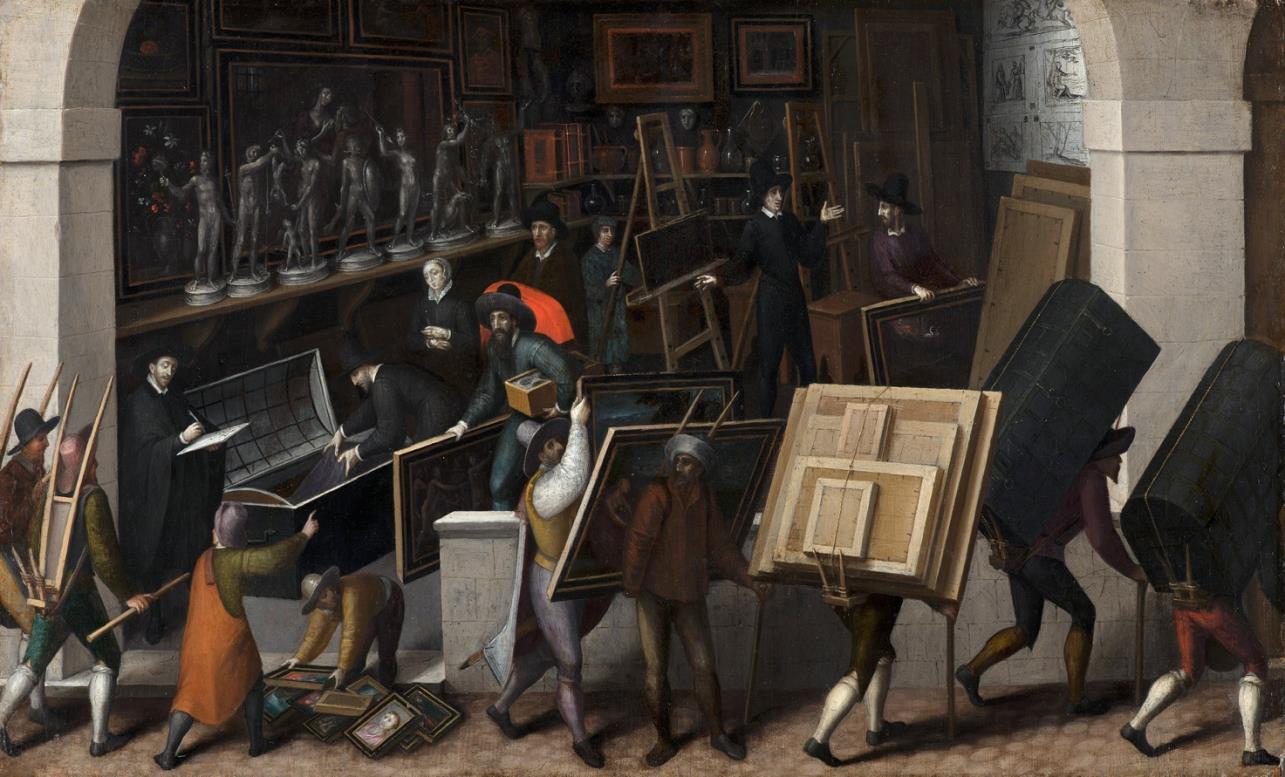Date: 28 June 2022
Time: 6 pm
Language: English
Participation: Free-of-charge but registration is required
Venue: Belvedere 21, Vienna (AT)
The #digiRoundtables are an initiative by the Austrian Gallery Belvedere, the Museumsbund Österreich, DArtHist Austria and the Time Machine Organisation. They serve to openly discuss current topics relevant in the cultural heritage sector. This time Charles van de Heuvel (Huygens Institute and University of Amsterdam) will deliver the keynote.
digiRoundtable III programme
- Welcome words by Christian Huemer (Director Research Centre Austrian Gallery Belvedere, CEO DArtHist Austria)
- Retrospection of past #digiRoundtables activities by Manfred Gruber (Federal Chancellery Austria), Thomas Aigner (Vice president Time Machine Organisation), Sabine Fauland (Museumsbund Österreich), Karlheinz Mörth (Austrian Academy of Sciences/Austrian Centre for Digital Humanities and Cultural Heritage, CLARIAH-AT), Robert Sablatnig (Technical University Vienna/Institute of Visual Computing & Human-Centered Technology, Treasurer Time Machine Organisation), Walter Scholger (University Graz/Centre for Information Modelling – Austrian Centre for Digital Humanities, CLARIAH-AT)
- Keynote: Infrastructures and Interfaces for research with linked data of the Dutch Golden Age by Charles van den Heuvel (Huygens Institute and University of Amsterdam)
Keynote: Infrastructures and Interfaces for research with linked data of the Dutch Golden Age
Charles van den Heuvel (Huygens Institute and University of Amsterdam)
The development of digital infrastructures and digitization of academic and cultural heritage collections require huge investments that only can be legitimized by the (re-)use of their big data and by demonstrating their societal relevance. How can these infrastructures and big data often be created for a future, yet unknown audience in mind be best prepared for use and of reuse in individual and collaborative historical research? To answer that question the expectations and experiences with two projects will be discussed. The first project Golden Agents Creative Industries and the Making of the Dutch Golden Age (2017–2022) focuses on the needs and challenges for creating an infrastructure to bring distributed cultural heritage collections together for research. The second project Virtual Interiors as Interfaces for Big Historical Data Research. Spatially Enhanced Publications (September 2018-2022) that uses data of Golden Agents can be seen as an experiment with interfaces to bring the idea of the Amsterdam Time Machine further. Both projects started off to answer different research questions about creative industries of the Dutch Golden Age. How can they be adapted for reuse as instruments for a more critical investigation of this period now this term becomes more and more contested?
Keynote speaker: Charles van den Heuvel
Charles van den Heuvel is Head Research of the Department Knowledge and Art Practices of the Huygens Institute in Amsterdam and professor Digital Methods and Historical Disciplines at the University of Amsterdam. He has a background in history of art specialized in the history of town planning, fortification, and architecture of the Early Modern Period (16th-17th Centuries) and worked in several cultural heritage institutions. Recent research interests are digital humanities, history of knowledge (in particular of knowledge circulation in the Republic of Letters) and history of library and information sciences. Currently, he is the principal investigator of the NWO-Large Investment Project: Golden Agents: Creative Industries and the Making of the Dutch Golden Age, The NWO-Smart Culture, Big Data and Digital Humanities Project: Virtual Interiors as Interfaces for Big Historical Data Research and the NWO-NWA science communication project: Through the lens of Antoni: How do you represent what you cannot see?
